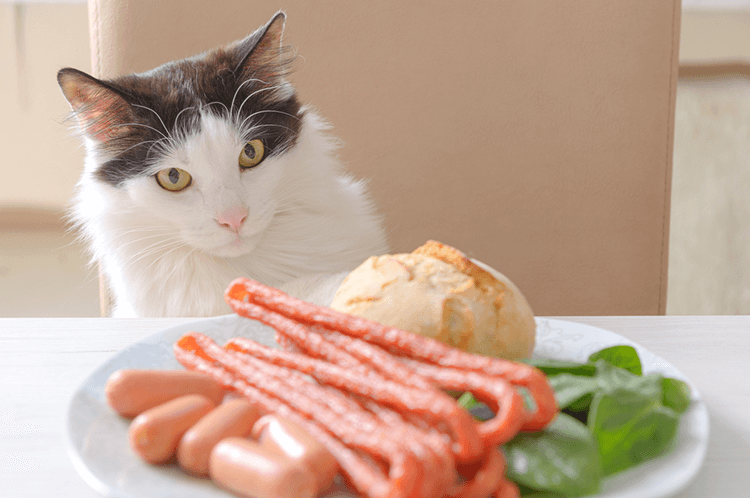Transitioning your kitten to a vegan diet is a complex and controversial topic, as cats are obligate carnivores, meaning their bodies are biologically designed to thrive on animal-based nutrients. However, if you are determined to explore a vegan diet for your kitten, it is crucial to proceed with caution, prioritize her health, and consult a veterinarian or feline nutritionist to ensure her nutritional needs are met. Below is a detailed guide to help you navigate this process:
1. Understand the Risks and Challenges
Cats require specific nutrients that are naturally found in
animal products, such as:
- Taurine: Essential for heart health, vision, and immune
function. A deficiency can lead to blindness, heart disease, and even death.
- Arachidonic Acid: A fatty acid critical for skin, coat,
and reproductive health, found only in animal fats.
- Vitamin A: Cats cannot convert plant-based beta-carotene
into vitamin A and must obtain it directly from animal sources.
- High-Quality Protein: Cats need a high protein intake, and
plant-based proteins may not provide the complete amino acid profile they
require.
A poorly formulated vegan diet can lead to severe health
issues, including malnutrition, urinary tract problems, and organ failure.
2. Consult a Veterinarian or Feline Nutritionist
Before making any dietary changes, consult a professional
who can:
- Assess your kitten’s health and nutritional needs.
- Recommend appropriate supplements to replace missing
nutrients.
- Monitor your kitten’s health throughout the transition.
3. Choose a High-Quality Vegan Cat Food
If you decide to proceed, select a commercially available
vegan cat food that is specifically formulated to meet feline nutritional
requirements. Some reputable brands include:
- Wysong Vegan Dry Cat Food: Contains added taurine, omega-3
fatty acids, and probiotics for digestive health.
- Evolution Diet Vegan Cat Food: Offers wet and dry options
with taurine supplementation and is free from artificial preservatives.
- Benevo Vegan Cat Food: Made with non-GMO ingredients and
fortified with essential nutrients like taurine and spirulina.
- AMI Vegan Cat Food: A balanced formula with added taurine
and arachidonic acid, suitable for cats with sensitivities.
Ensure the food meets the Association of American Feed
Control Officials (AAFCO) guidelines for feline nutrition.
4. Supplement the Diet
Even with commercial vegan cat food, your kitten may require
additional supplements to avoid deficiencies. Common supplements include:
- Synthetic Taurine: To prevent heart and vision problems.
- Arachidonic Acid: Derived from algae or synthetic sources.
- Vitamin A and B12: To support overall health.
- Omega-3 Fatty Acids: From plant-based sources like
flaxseed or algae oil.
5. Transition Gradually
Introduce the new diet slowly to avoid digestive upset:
- Start by mixing a small amount of vegan food with her
current diet.
- Gradually increase the proportion of vegan food over
several weeks.
- Monitor her appetite, energy levels, and litter box habits
for any signs of discomfort or health issues.
6. Monitor Health Closely
Regularly check for signs of nutritional deficiencies, such
as:
- Weight loss or poor growth.
- Dull coat or excessive shedding.
- Lethargy or behavioral changes.
- Urinary issues or digestive problems.
Schedule frequent veterinary check-ups to ensure her diet is
meeting her needs.
7. Ethical Considerations
If you are uncomfortable feeding your kitten meat but are
concerned about her health, consider alternative approaches:
- Adopt a Rescue Cat: Providing a home to a cat in need
aligns with vegan values.
- Choose Ethically Sourced Meat: Opt for cat food made from
humanely raised or sustainably sourced animal products.
- Support Lab-Grown Meat: Companies like Wild Earth are
developing cruelty-free, lab-grown meat for pets, which may become a viable
option in the future.


